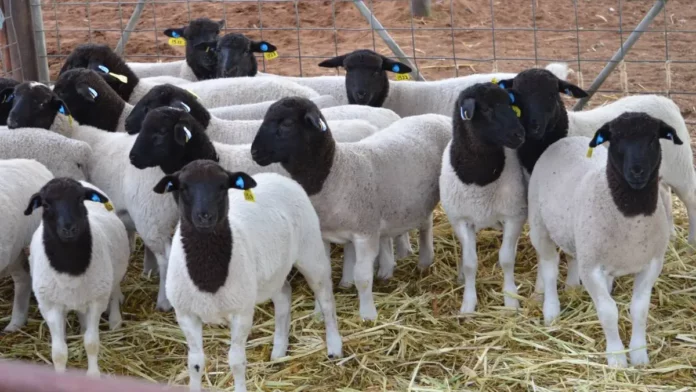Dorper sheep breeding is gaining popularity in Kenya, with farmers ready to invest in the breed owing to its superior characteristics and market value.
Unlike the indigenous breeds, a Dorper is resistant to diseases and can survive in various harsh environmental conditions.
While many farmers in Kenya rear the breed for meat purposes, breeding Dorper can be very lucrative given the surging demand for the animal.
Soy Constituency Member of Parliament (MP) David Kiplagat is among the few farmers in the country who have tapped into the venture of Dorper breeding.
His farm, DK Dorper Breeding, in Soy Uasin Gishu, hosts 100 grades three to one Dorpers. Grade one is the most superior, and the farmer targets to achieve only grade one by 2026.
“We have 30 grade one Dorper, and we target at having at least 70. The advantage is that grade one reproduces twins, and new production will give 70 percent of rams, which is ideal for improving breeds. My advice to breeders is to have a few and good quality breeds to control in-breeding,” says Kiplagat.
Bernard Njaramba: How ex-CEO established successful dorper sheep farm in Machakos
Before he embarked on the Dorper project, Kiplangat says he did research on South Africa’s Dorper sheep performance compared to the local breed.
“I started my Dorper farm with the intention of improving sheep production in the country. I noted with concern that most breeds that local farmers had, were those weighing between 10 and 20 kilograms and would fetch between Sh6,000 and Sh15,000, yet a South African Dorper can fetch up to Sh200,000,” he said.
Four years ago, he imported a ram from South Africa at Sh140,000, which has since been servicing the ewes. He gets ewes from the local farmers.
“I realized importing Dorper ewes was expensive. That is why I decided to look for those with nice attributes kept by local farmers, bought them for breeding and imported ram and started my breeding journey,” he says.
His flock is housed in separate paddocks based on age, sex, feeding needs, and stage of development.
The farmer uses ewes for incubation and curls the flock when the number of rams increases. He says the farm reduced the flock by selling 40 rams in a public auction two years ago, which fetched Sh2.5 million.
A ram aged four to six months from his farm sells at between Sh50,000 to Sh60,000, the year-old sells at Sh100,000, while the fully developed at two and a half years retails at between Sh170,000 to Sh200,000. A mature ram weighs an average of 100, with the heaviest hitting 137 kilos.
“There is a huge demand for rams. In this farm, we do not argue about the price but discuss whether we have the rams or not,” he says.








